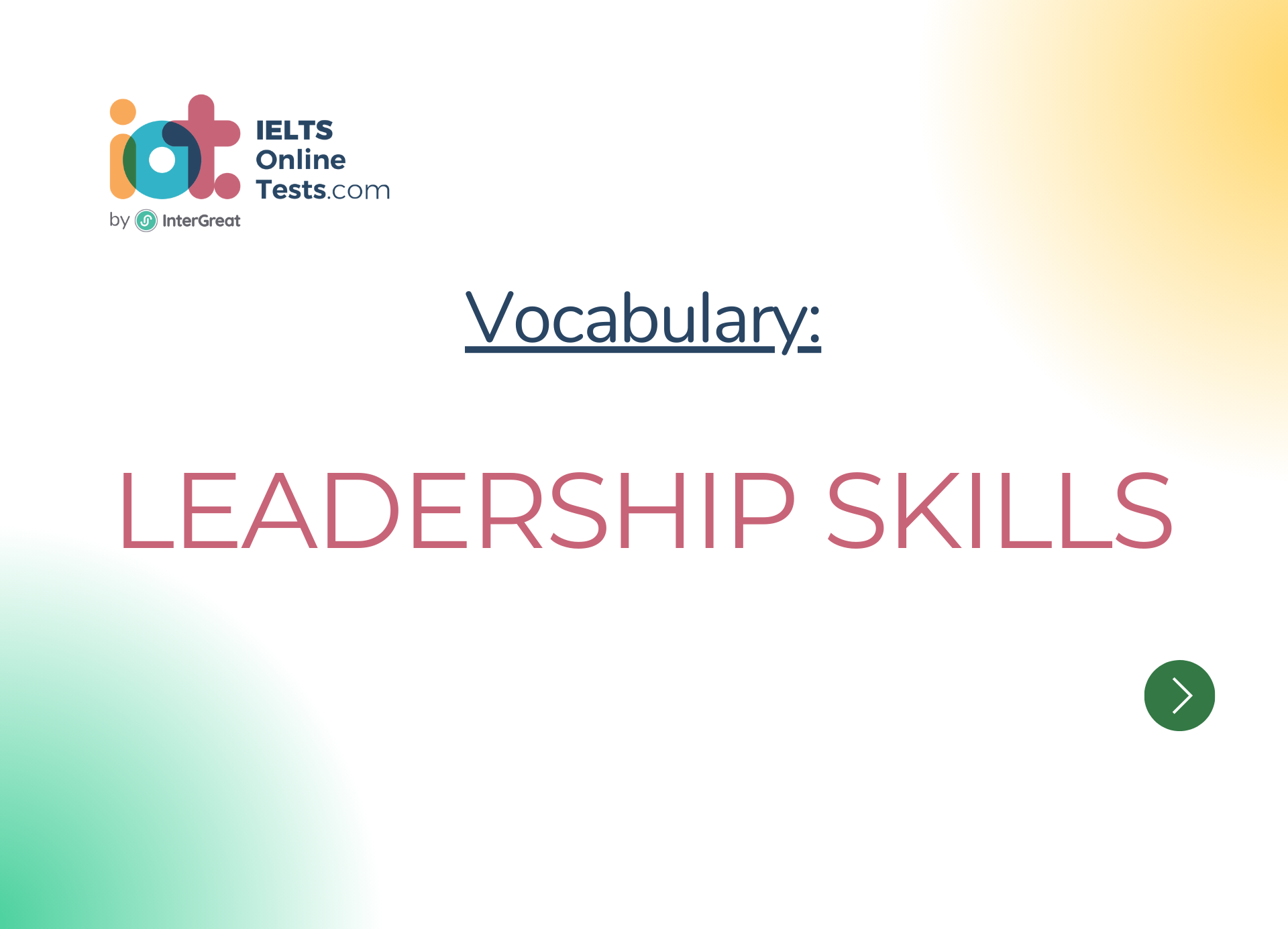
Leadership skills
Here's a detailed list of vocabulary related to leadership skills for the IELTS band score 4.5-6.0:
Leadership:
The ability to guide, direct, and inspire others toward achieving a common goal.
Communication:
The skill of effectively conveying ideas, information, and instructions to others.
Decision-making:
The ability to make sound judgments and choices in various situations.
Problem-solving:
The skill of analyzing challenges and finding effective solutions.
Critical Thinking:
The capacity to assess situations objectively and make informed decisions.
Creativity:
The ability to generate innovative ideas and approaches.
Emotional Intelligence:
The skill of understanding and managing one's emotions and empathizing with others.
Adaptability:
The capacity to adjust to changing circumstances and handle uncertainty.
Vision:
The ability to set a clear and inspiring direction for a team or organization.
Motivation:
The skill of encouraging and inspiring others to achieve their best performance.
Empowerment:
The act of giving others the authority and responsibility to make decisions.
Influence:
The ability to persuade and sway others' opinions and actions.
Conflict Resolution:
The skill of addressing and resolving disagreements and disputes within a team.
Delegation:
The act of assigning tasks and responsibilities to team members.
Active Listening:
The ability to listen attentively and understand others' perspectives.
Time Management:
The skill of efficiently utilizing time and resources to accomplish tasks.
Negotiation:
The ability to reach mutually beneficial agreements with others.
Team Building:
The process of fostering cooperation and collaboration among team members.
Crisis Management:
The skill of handling and mitigating crises and emergencies.
Ethical Leadership:
Leading with integrity and adhering to ethical principles.
Resilience:
The capacity to bounce back from setbacks and challenges.
Feedback:
The ability to provide constructive feedback and evaluations to others.
Assertiveness:
The skill of expressing one's opinions and needs confidently and respectfully.
Strategic Thinking:
The ability to envision long-term plans and goals.
Interpersonal Skills:
The capacity to interact effectively and harmoniously with others.
Decision-making Process:
The systematic approach to making choices and evaluating alternatives.
Leadership Development:
Programs and activities to enhance leadership skills and abilities.
Communication Styles:
Different ways of conveying information and ideas, such as assertive, aggressive, or passive.
Motivational Techniques:
Strategies for inspiring and encouraging team members.
Public Speaking:
The skill of delivering speeches and presentations in front of an audience.
Teamwork:
The ability to work collaboratively with others to achieve common objectives.
Goal Setting:
The process of defining specific and measurable objectives.
Feedback Loop:
The ongoing exchange of feedback between leaders and team members.
Emotional Resilience:
The capacity to manage and cope with emotional challenges.
Inspirational Leadership:
Leading by example and motivating others through vision and enthusiasm.
Coaching and Mentoring:
Supporting and guiding the development of team members.
Diplomacy:
The skill of handling sensitive or difficult situations tactfully.
Conflict Management:
Strategies for addressing and resolving conflicts within a team.
Change Management:
Leading and guiding others through periods of transition and change.
Cross-Cultural Leadership:
Leading diverse teams with different cultural backgrounds.
Knowing these leadership skills and related terms will help you discuss and understand effective leadership qualities and approaches. Good luck with your IELTS preparation!




